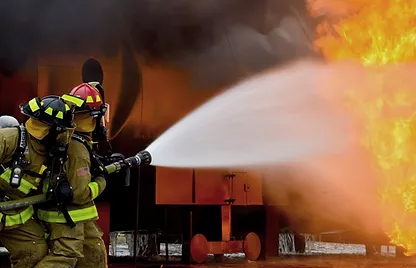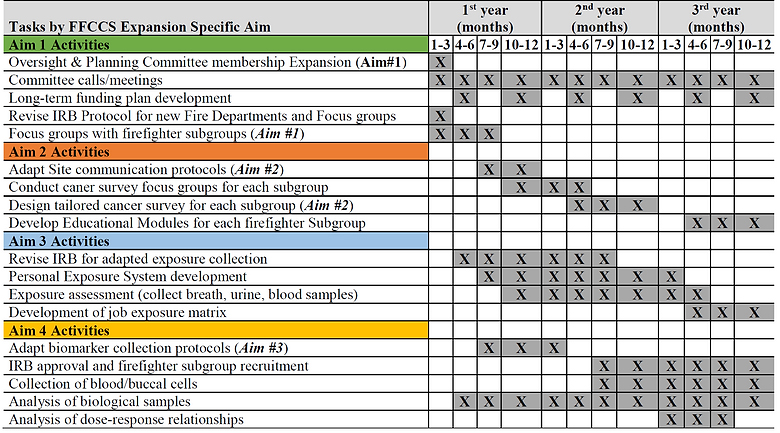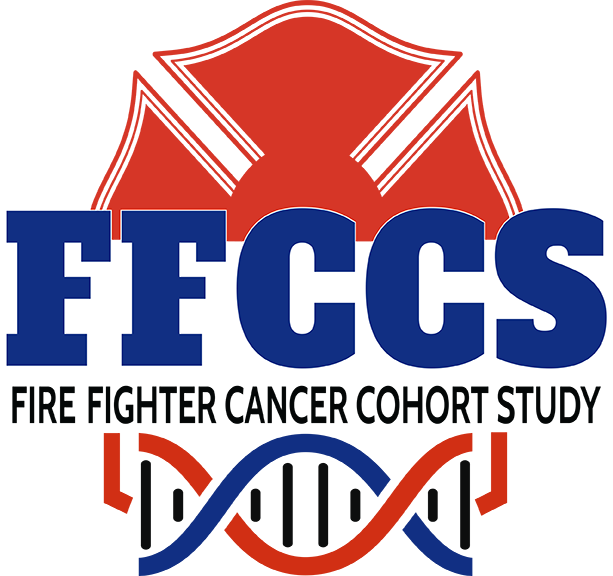Expansion of the Fire Fighter Cancer Cohort Study:
Arson Investigators, Instructors, Volunteers, and
Wildland-Urban Interface Firefighters
A FFCCS FEMA-funded Sub-Project
General information:
Not all firefighters are exposed to carcinogens equally. Epidemiologic studies on cancer incidence and mortality rates in the U.S. firefighter workforce have been largely limited to retrospective analyses of career firefighters, neglecting the critical workflow and unique exposures of other firefighter subgroups. The purpose of this new 36-month research proposal is to leverage the national Fire Fighter Cancer Cohort Study (FFCCS) infrastructure for expansion of research protocols in biomarker, carcinogenic exposure, and survey data collection to four firefighter subgroups: arson investigators, instructors, volunteers, and wildland-urban interface firefighters.

Live Fire Training Instructors Document (March 7, 2022)
Research Aims:
1. Expansion of existing FFCCS advisory board membership to national leadership from each subgroup.
2. Adapting existing survey data collection instruments for priority cancer prevention and exposure control interventions identified by subgroup
leadership.
3. Conduct biological exposure monitoring to identify determinants of exposure and expand the job-exposure matrix for each subgroup.
4. Collect and analyze biological samples for analysis of epigenetic markers of cancer pathway activation.
Study Timeline:
The FFCCS Expansion firefighters study is an on-going component of the overarching FFCCS research project. The timeline of this project and the separate study components is shown below:

Anticipated Impact:
Firefighter subgroups will benefit from having tailored biomarker, exposure, and health survey data collection tools that are standardized and comparable and within and across subgroups.
This page last updated on 3/7/2022

